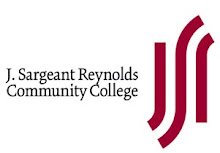For any baseball fans, I have an awesome view of Camden Yards (home of the Orioles) from my hotel window.
A highlight of the day at the Innovations Conference was the opportunity to participate in a roundtable discussion led by Paloff and Pratt, authors of a number of books about online instruction. The discussion was really a discussion, not a presentation, and the people at the table asked really practical questions and shared real world experiences. The discussion focus was generally about alternative and authentic assessments in online courses. This discussion naturally moved to questions about how to handle cheating if testing is not proctored.
The experts suggested that we should not rely solely on tests and quizzes to assess student learning. These, particularly if multiple choice and true/false questions, are not necessarily a testing of learning but a test of memory. Assessments that require application, demonstrations, critiques, reflections, and other higher order thinking give better feedback about true student learning. With candor, all folks at the table acknowledged that building and grading these kinds of assessments require greater commitment of effort and time.
Pratt and Paloff recommend using rubrics. This helps students know what the instructor wants and makes grading easier and faster. They both often use a technique where they have the students to complete the rubric, explaining why they rate themselves as they do. This then is the basis for formative dialog between the instructor and student, especially where they do not agreed with the student’s assessment. For more information about using rubrics, join Evaluation Rubrics: Powerful Tools for Teaching and Learning in the Virtual Conference 2010 and see Ghazala Hashmi’s explanation of rubrics and how they can be useful.
Another interesting point with which we all agreed at the table: No matter how you design the test (using timed test, lock down browser, randomized questions), consider any testing done at home to be an open book test. (I met the regional sales rep for Respondus and she was delighted to meet someone from the Virginia Community College System, a premiere Respondus client.)
We are now in the second week of the Virtual Conference 2010. While sharing information about many issues related to teaching and learning with technology, the Virtual Conference offers an introduction to Blackboard 9 from the student perspective. I hope that you are trying out some of the new features.
Have a great day!
Subscribe to:
Post Comments (Atom)


That is a nice view of Camden Yards! I'm taking the IDOL online course now and am becoming a fan of rubrics for grading. I sort of use them in some ways, but not as well as I could. I'm also rethinking giving any kind of tests. Right now I have fully half of my class' points coming from non-test assessments, and I do feel like I get a better feel for what students are learning from those. As you mentioned, they ARE more time-consuming to grade, but if student learning is the goal, it's worthwhile.
ReplyDelete